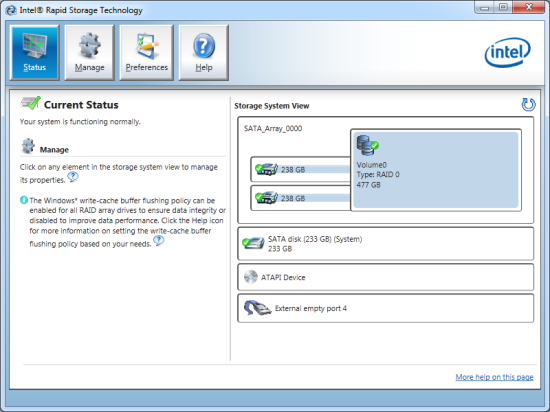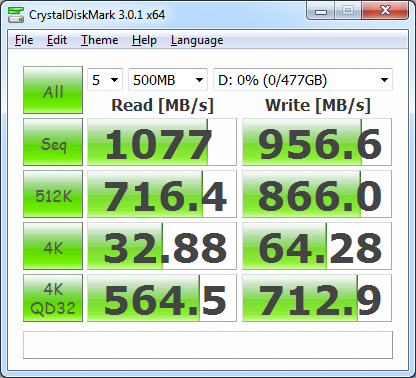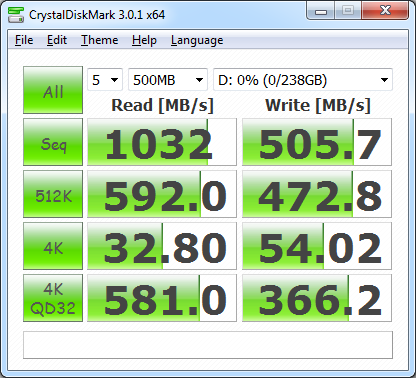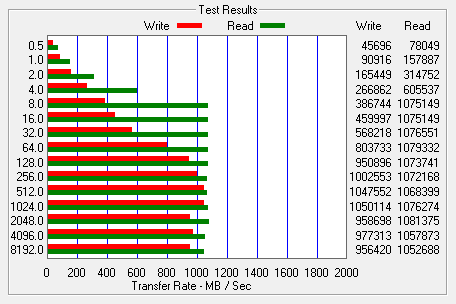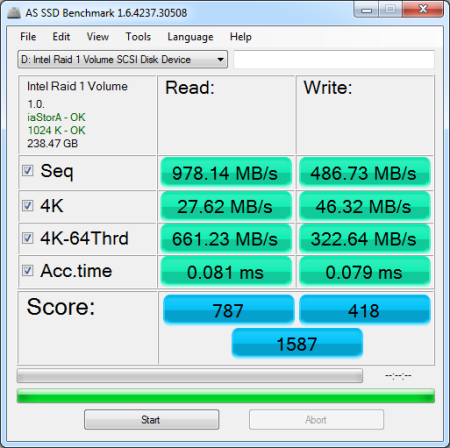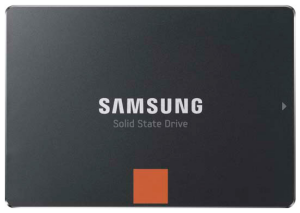

Model: Samsung SSD 840 Pro Series 256GB Solid State Drive
Manufacturer: Samsung Electronics
Samsung Electronics has been a leader in the electronics industry for more than 30 years. Since the introduction of their first television in 1970, this Korean company has grown to become one of the world's leading electronics manufacturers, offering everything from tiny semiconductors to large home appliances. Samsung is no stranger to the storage industry either. Along with an assortment of DVD and Blu-ray Disc drives, the company offers both hard drive and flash based storage solutions for the portable and desktop computer markets
Like many other manufacturers, Samsung has set its sights on the growing solid-state drive (SSD) market. This past fall, the company introduced two new drives, the SSD 840 and SSD 840 Pro. Designed and built completely in-house, these two ultra-slim SSDs are powered by Samsung's own triple-core MDX controller and feature a SATA 6GB/s interface, specially-engineered wear-leveling and garbage collection algorithms and up to 512MB of cache. From here though, the similarities end. Where the SSD 840 is aimed at the cost conscious consumer, the high-performance SSD 840 Pro is equipped with Samsung's Toggle DDR2 NAND flash memory to deliver up to 540MB/s read and 520MB/s write speeds as well as a maximum of 100,000 IOPS.
When I reviewed the SSD 840 Pro back in February, I was impressed by its great, all around performance. Needless to say, when I had to purchase a few SSDs for a virtualization project at work I chose the 256GB version of the SSD 840 Pro. Before installing the drives though, I took them and ran some tests to see how well they performed in a RAID array. Keep reading to see what you can expect from a pair of SSD 840 Pros.
The test system used in this review was an HP 8300 Elite. The computer came equipped with an Intel Core i5-3470 Ivy Bridge CPU, 16GB of DDR3 1600MHz memory, Seagate Barracuda ST250DM000 250GB SATA 6 Gb/s hard drive, NVIDIA Quadro FX600 1GB PCIe graphics card and an Intel 82579-LM gigabit network card. For the operating system, I installed a fresh copy of Windows 7 Enterprise.
To test the performance of the two Samsung SSD 840 Pro drives in RAID, I ran a series of benchmarks using CrystalDiskMark 3.0.1, ATTO Disk Benchmark 2.46, AS SSD, Anvil's Storage Utilities and Iometer.
For simplicity's sake, I used the RAID controller built into the Intel Q77 Express chipset. I also installed version 11.6.0.1030 of Intel's Rapid Storage Technology driver and used the included utility to configure the RAID array.
CrystalDiskMark 3.0.1:
First, I ran a few quick tests using CrystalDiskMark. This benchmark tool measures the performance of a storage device by testing its sequential read and write speeds as well as its random read and write speeds using blocks 512K and 4K in size.
The two SSD 840 Pros performed very well when configured in a RAID 0 array. The two drives were able to read at 1077 MB/s and write at a blistering 956.6 MB/s. The sequential read speed was also quite good when using RAID 1. However, the write speed dropped to 505.7 MB/s which is on par with what we saw in our original review when testing a single SSD 840 Pro.
ATTO Disk Benchmark 2.46:
I also used ATTO Disk Benchmark to test the PX-256M5P's sequential read and write speeds. The tests are run using blocks ranging in size from 0.5KB to 8192KB and the total length set to 256MB.
When configured as a RAID 0 array, the two SSD 840 Pros were able to read at 1,081 MB/s and write at 1,050 MB/s. The read speed was again quite good in RAID 1. However, the write speed topped out at only 534 MB/s.
AS SSD:
AS SSD is a relatively new benchmark designed specifically for solid state drives. The application contains five synthetic tests used to determine the sequential and random read and write performance of a drive.
Anvil's Storage Utilities:
Anvil's Storage Utilities is another new benchmark designed with SSDs in mind. The standard storage benchmark measures a drive's performance by testing its transfer speeds, access times and IOPS.

Samsung SSD 840 Pro 256GB - RAID 0

Samsung SSD 840 Pro 256GB - RAID 1
Iometer:
Lastly, I ran a series of tests using Iometer. This tool can be configured to benchmark a number of things. In this case, I used it to measure the SSD 840 Pro's read and write speeds and the number of operations per second. The tests were run using random bytes and a queue depth of 3 and then again at a queue depth of 32.

The SSD 840 Pro's sequential read and write performance was very similar to what we saw in our other tests. When configured as a RAID 0 array, the two drives were able to read at 1019.09 MB/s and write at 894.88 MB/s. They were also able to read at a respectable 974.08 MB/s when in RAID 1. However, the write speed dropped to 444.81 MB/s, which is slower than what we saw with a single SSD 840 Pro.
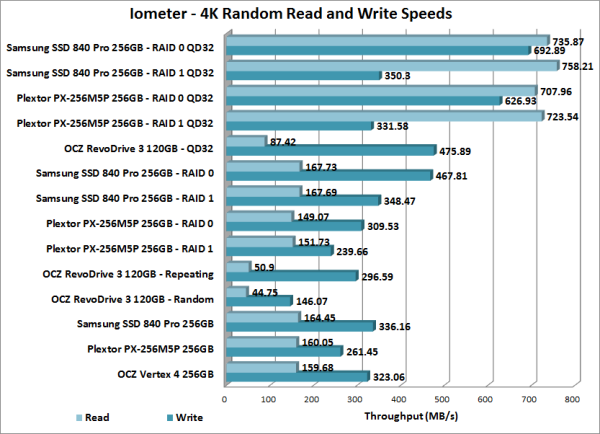
At low queue depths, RAID didn't do much to boost the SSD 840 Pro's random read and write performance. The only real notable improvement was when doing random writes using RAID 0. At higher queue depths, it was a totally different story. When configured as a RAID 0 array, the two drives were able to write at 735.87 MB/s and read at a blazing 692.89 MB/s.
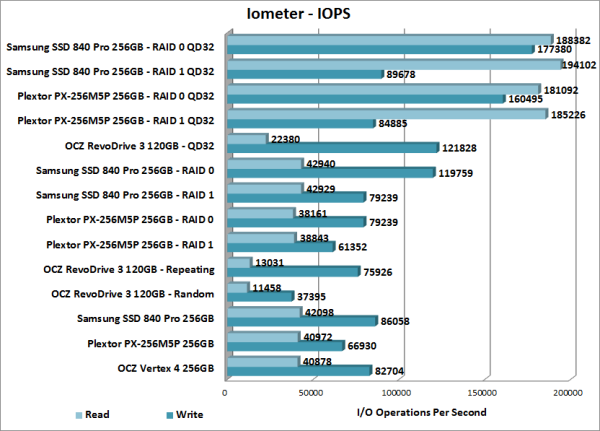
At high queue depths, the number of IOPS a pair of SSD 840 Pros is capable of is nothing short of amazing. When configured as a RAID 0 array, two drives reached 188,382 random read IOPS and 177,380 random write IOPS.
Final Thoughts:
Samsung's SSD 840 Pro is one of, if not the best, consumer-grade SSDs on the market today. By itself, the drive is capable of some impressive performance numbers, but when two or more are combined in a RAID array, the results are nothing short of amazing. Using a pair of 256GB SSD 840 Pros and an off the shelf, Ivy Bridge-based PC, I was able to read at speeds as high as 1,081 MB/s and write at speeds in excess of 950 MB/s. This level of performance carried over to our random write tests, where the two drives were able to produce more than 177,000 IOPS at high queue depths. Admittedly, this is a bit excessive for the average consumer but if you're someone who regularly pushes their computer to its limits, a few SSD 840 Pros in a RAID array may just be what the doctor ordered.
The SSD 840 Pro is available now in 128GB, 256GB and 512GB capacities. Prices on Amazon.com currently range from $137 up to $475, with the 256GB version featured here going for about $230.
